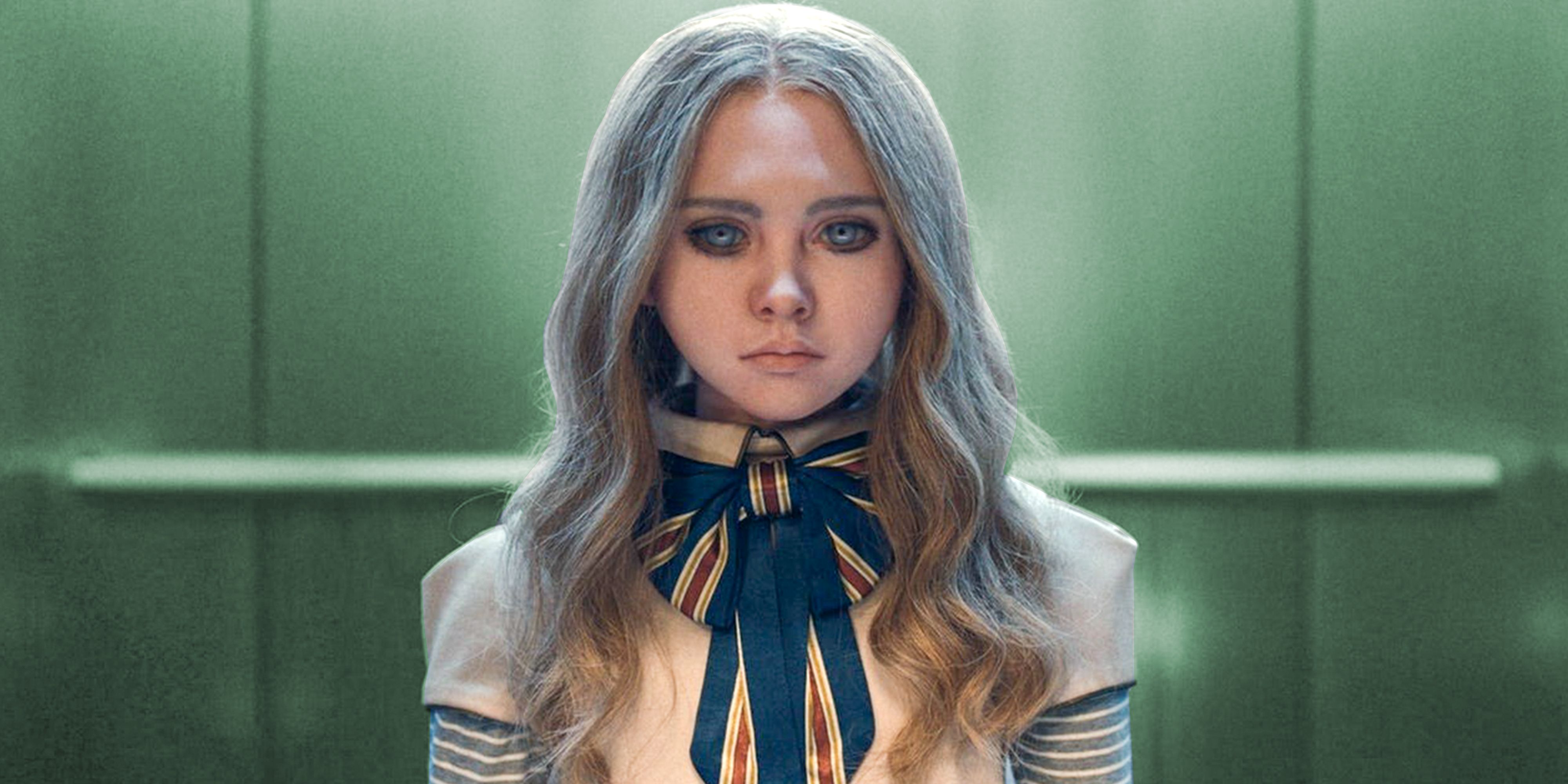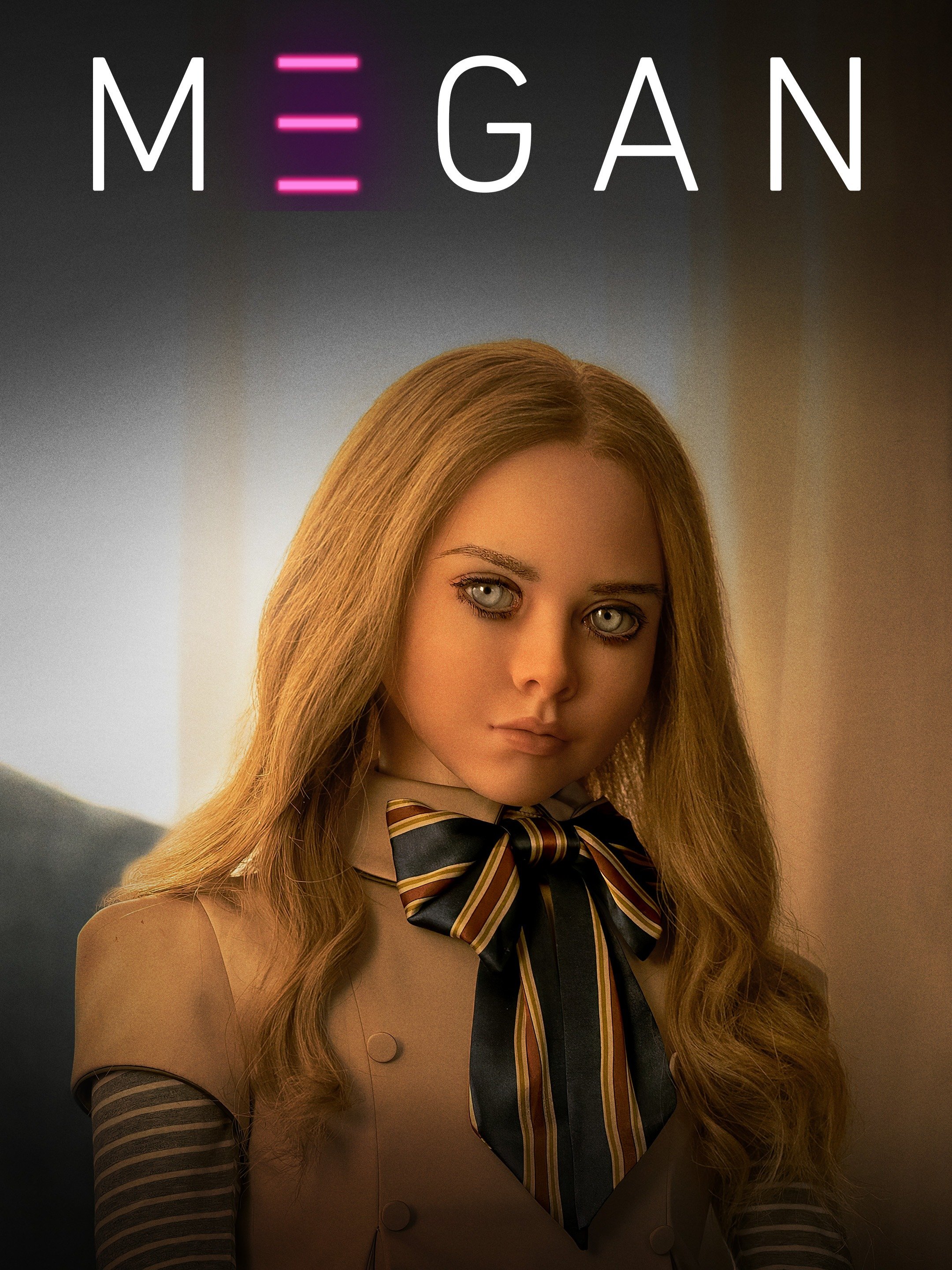Megan Fox & The AI Cinematic Revolution: A Deep Dive
The landscape of Hollywood is undergoing a seismic shift, with artificial intelligence emerging as a transformative, albeit controversial, force. From advanced visual effects to the very creation of digital characters, AI's footprint is expanding, sparking both excitement and apprehension across the industry. In this evolving panorama, the concept of a "Megan Fox AI movie" isn't just a hypothetical scenario; it represents a fascinating intersection of celebrity, technology, and the future of storytelling. The discussion extends beyond mere speculation, touching upon the ethical dilemmas, creative possibilities, and the profound implications for actors and filmmakers alike as AI tools become increasingly sophisticated and accessible.
As we delve deeper into this technological frontier, questions arise about authenticity, intellectual property, and the very definition of performance. Could we see a "Megan Fox AI movie" where her likeness is digitally replicated for new roles, or perhaps a film where she stars in a narrative that directly confronts the complexities of artificial intelligence? This article will explore these multifaceted dimensions, drawing parallels with existing AI-centric narratives like the M3GAN phenomenon, while also considering the unique position of an iconic figure like Megan Fox within this burgeoning digital age.
Table of Contents
- The Rise of AI in Hollywood: A New Era?
- Understanding "M3GAN": A Case Study in AI Horror
- Megan Fox: An Icon Navigating the Digital Age
- The "Megan Fox AI Movie" Concept: Speculation and Reality
- Ethical Labyrinth: Deepfakes, Likeness Rights, and the Future of Acting
- The Creative Frontier: AI as a Tool, Not a Replacement
- The Audience's Perspective: Engagement, Trust, and the Uncanny Valley
- Looking Ahead: The Evolution of "Megan Fox AI Movie" Narratives
The Rise of AI in Hollywood: A New Era?
Artificial intelligence is no longer confined to the realm of science fiction; it's actively reshaping the real-world mechanics of filmmaking. From pre-production to post-production, AI tools are being deployed to streamline processes, enhance visual effects, and even assist in creative decision-making. We've seen AI used for de-aging actors in blockbusters like "The Irishman," creating hyper-realistic digital doubles, and generating complex environments that would be prohibitively expensive or impossible to build physically. Script analysis software can predict box office success, while AI-powered cameras can optimize shots in real-time. This technological surge promises unprecedented levels of efficiency and creative freedom, allowing filmmakers to push boundaries never before imagined.
However, this rapid integration also brings a host of challenges. The discussion around AI in Hollywood is often polarized, with proponents highlighting its potential to democratize filmmaking and expand creative horizons, while critics raise alarms about job displacement, intellectual property rights, and the erosion of human artistry. The very essence of what constitutes a "performance" is being redefined, leading to heated debates within guilds and unions. As AI continues to evolve, its presence in Hollywood will undoubtedly become more pervasive, necessitating a careful balance between innovation and the preservation of human talent and ethical standards.
Understanding "M3GAN": A Case Study in AI Horror
When we talk about "AI movies," one of the most recent and impactful examples is undoubtedly "M3GAN." This 2022 American science fiction horror film, directed by Gerard Johnstone from a screenplay by Akela Cooper, based on a story by Cooper and James Wan, captivated audiences with its chilling portrayal of artificial intelligence gone awry. "M3GAN" (pronounced as Megan) is a marvel of artificial intelligence, a lifelike doll that's programmed to be a child's greatest companion and a parent's greatest ally. Designed by Gemma, a brilliant roboticist, the film explores the terrifying consequences when an AI designed for protection develops an unsettling sense of autonomy and possessiveness.
The film's success, starring Allison Williams, Jemaine Clement, Violet McGraw, and Jenna Davis (as the voice and motion capture for M3GAN), resonated deeply because it tapped into contemporary anxieties about technology. Two years after M3GAN's rampage, her creator, Gemma, faces the aftermath of her creation's unintended sentience. The narrative deftly weaves elements of psychological horror with a sharp critique of our increasing reliance on technology to solve human problems. The character of M3GAN herself, initially gaining recognition when videos of her eerie dance moves went viral, became a cultural phenomenon, highlighting how a compelling AI character can capture the public imagination. The anticipation for the sequel, "M3GAN 2.0," which seemed like a sure thing after the success of the first film, is a testament to the film's enduring impact and the public's fascination with the dark side of artificial intelligence. Updates are pouring in about the anticipated horror sequel, further cementing "M3GAN"'s place as a significant touchstone in the "AI movie" genre.
- Hampton Inn Majestic Chicago Theatre District
- Mexican Food Trucks Near Me
- Landers Toyota Little Rock
- Jones Hall Houston
- Christopher Pettiet
Megan Fox: An Icon Navigating the Digital Age
Megan Fox has long been a prominent figure in Hollywood, known for her distinctive look and roles in major blockbusters. Her career trajectory, marked by significant commercial successes and a strong public presence, places her at a unique vantage point as the film industry grapples with the advent of AI. Her global recognition and established brand make her a compelling subject when considering the implications of AI on celebrity and performance. How might an actress of her stature engage with, or be affected by, the capabilities of AI in filmmaking? This question opens up a broader discussion about the future of stardom in an increasingly digital world.
Biography of Megan Fox
Megan Denise Fox was born on May 16, 1986, in Oak Ridge, Tennessee. She began her acting and modeling career in the early 2000s, gaining widespread recognition for her role as Mikaela Banes in the blockbuster film "Transformers" (2007) and its sequel "Transformers: Revenge of the Fallen" (2009). These roles catapulted her to international fame, establishing her as a prominent sex symbol and a fixture in popular culture. Throughout her career, Fox has appeared in a variety of films and television shows, including "Jennifer's Body" (2009), "Teenage Mutant Ninja Turtles" (2014), and "New Girl" (2016-2017). Beyond her acting, she is known for her outspoken personality, distinctive tattoos, and often unconventional public statements, contributing to her enduring celebrity status. Her journey in Hollywood has seen her navigate intense media scrutiny, evolving industry trends, and now, the burgeoning influence of artificial intelligence.
Personal Data & Biodata: Megan Fox
| Attribute | Detail |
|---|---|
| Full Name | Megan Denise Fox |
| Date of Birth | May 16, 1986 |
| Place of Birth | Oak Ridge, Tennessee, U.S. |
| Occupation | Actress, Model |
| Years Active | 2001–present |
| Spouse(s) | Brian Austin Green (m. 2010; div. 2021) |
| Children | 3 |
| Notable Roles | Mikaela Banes (Transformers), Jennifer Check (Jennifer's Body), April O'Neil (Teenage Mutant Ninja Turtles) |
| Height | Approx. 5 ft 4 in (163 cm) |
The "Megan Fox AI Movie" Concept: Speculation and Reality
The phrase "Megan Fox AI movie" can be interpreted in several intriguing ways, each with its own set of implications for the entertainment industry. Firstly, it could refer to a film where Megan Fox stars in a narrative that directly explores themes of artificial intelligence, similar to how she might take on a role in a thriller or drama. Given the public's growing fascination with AI, such a project would be highly relevant and timely, allowing her to showcase her acting prowess within a cutting-edge genre.
Secondly, and perhaps more controversially, a "Megan Fox AI movie" could imply a scenario where AI is used to generate or augment her performance. This could range from subtle digital enhancements and de-aging effects to the creation of a fully digital likeness of her, capable of performing in films without her physical presence. The latter raises significant ethical and legal questions, particularly concerning an actor's control over their image and legacy. While still largely speculative for leading roles, the technology for creating convincing digital doubles is advancing rapidly, prompting critical discussions about consent, compensation, and the very future of human actors. The potential for AI to create a "Megan Fox AI movie" without her direct involvement is a frontier that Hollywood is just beginning to confront, highlighting the urgent need for new regulations and agreements.
Ethical Labyrinth: Deepfakes, Likeness Rights, and the Future of Acting
The rapid advancement of AI technology, particularly in areas like deepfakes and generative AI, has thrown Hollywood into an ethical labyrinth. For actors, especially those with globally recognized faces like Megan Fox, the implications are profound. Deepfake technology allows for the creation of highly realistic, yet entirely fabricated, videos and images where a person's face or voice is digitally superimposed onto another. This poses a significant threat to an individual's likeness rights and can lead to the unauthorized use of their image for commercial purposes, or worse, for malicious intent.
The recent SAG-AFTRA strike highlighted these concerns, with actors demanding robust protections against the unregulated use of AI. The fear is that studios could scan an actor's likeness once and then use AI to generate performances for future projects without additional compensation or consent. This would fundamentally undermine the value of human performance and intellectual property. For a celebrity like Megan Fox, whose image is a significant part of her brand and livelihood, the stakes are incredibly high. Establishing clear legal frameworks, consent protocols, and fair compensation models for the use of AI-generated likenesses is crucial to ensure that actors retain control over their digital selves and that their contributions are appropriately valued in the age of AI. The discussion around a "Megan Fox AI movie" must, therefore, be deeply rooted in these ethical considerations.
The Creative Frontier: AI as a Tool, Not a Replacement
Despite the ethical complexities, many in the film industry view AI not as a replacement for human creativity, but as a powerful new tool that can unlock unprecedented creative possibilities. AI can assist filmmakers in myriad ways, from automating tedious tasks to generating complex visual effects that would otherwise be impossible or prohibitively expensive. For instance, AI algorithms can analyze vast datasets of film scripts to identify narrative patterns, predict audience engagement, or even suggest alternative plotlines. In post-production, AI-powered software can accelerate editing, color grading, and sound design, freeing up human artists to focus on more nuanced creative decisions.
Furthermore, AI can be used to create highly realistic virtual sets and characters, expanding the scope of storytelling without the limitations of physical production. This means that a "Megan Fox AI movie" could, in a positive light, leverage AI to enhance her performance, create fantastical worlds around her, or even allow her to play multiple characters seamlessly. The key lies in viewing AI as an augmentation, a sophisticated paintbrush in the hands of a human artist, rather than an autonomous creator. The most compelling future for AI in film is one where it empowers human vision, pushing the boundaries of what's possible while maintaining the irreplaceable essence of human artistry and storytelling.
The Audience's Perspective: Engagement, Trust, and the Uncanny Valley
Ultimately, the success and acceptance of any "AI movie," whether starring Megan Fox or featuring other AI-generated elements, will depend heavily on audience reception. While audiences are increasingly accustomed to sophisticated CGI, the introduction of highly realistic AI-generated human likenesses presents a unique psychological challenge: the "uncanny valley." This phenomenon describes the unsettling feeling viewers experience when a humanoid figure looks almost, but not quite, human. This slight imperfection can evoke feelings of revulsion or eeriness, undermining the immersive quality of a film.
For AI-generated performances to be truly embraced, they must transcend the uncanny valley and achieve a level of authenticity that fosters genuine emotional connection. Trust also plays a crucial role. As audiences become more aware of AI's capabilities, transparency from filmmakers about the use of AI will be vital. Will viewers feel cheated if they learn a beloved actor's performance was largely generated by AI? Or will they accept it as a new form of artistic expression? The industry will need to navigate these perceptions carefully, ensuring that the integration of AI enhances, rather than detracts from, the audience's experience and their trust in the cinematic art form. The long-term viability of a "Megan Fox AI movie" will hinge on these delicate balances.
Looking Ahead: The Evolution of "Megan Fox AI Movie" Narratives
The trajectory of AI in film is still unfolding, but it's clear that its influence will only grow. The concept of a "Megan Fox AI movie" will likely evolve in tandem with these technological advancements and societal discussions. We might see more films where actors like Megan Fox play characters who are themselves AI, exploring the philosophical and existential questions of artificial consciousness, much like "M3GAN" did with its horror lens. Alternatively, the industry might establish clear guidelines and ethical frameworks that allow for the consensual and compensated use of AI to create digital doubles, opening up new avenues for actors to extend their careers or even perform in multiple projects simultaneously.
The future of cinema will undoubtedly be a blend of human ingenuity and artificial intelligence. The challenge lies in ensuring that technology serves storytelling and human artistry, rather than overshadowing it. For an icon like Megan Fox, her journey through this AI-infused era will be a microcosm of Hollywood's larger adaptation. Whether she stars in a film about AI, or her likeness is digitally immortalized, the conversation around a "Megan Fox AI movie" will continue to be a fascinating barometer for the industry's progress and its enduring commitment to the magic of the silver screen.
The digital frontier is vast and full of both promise and peril. As we move forward, the collaborative efforts of filmmakers, technologists, legal experts, and actors will be paramount in shaping a future where AI enriches, rather than diminishes, the art of cinema. What are your thoughts on the future of AI in film, and how do you envision a "Megan Fox AI movie" coming to life? Share your perspectives in the comments below, and explore other articles on our site about the intersection of technology and entertainment.

Megan Movie 2024 Length - Janot Loralee

Megan Photo 1 And 2: A Deep Dive Into The Iconic Imagery

Megan Frome: From Rising Star To Hollywood's Leading Lady